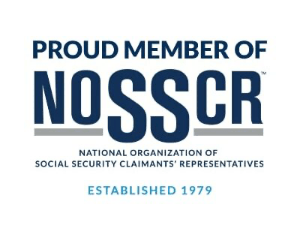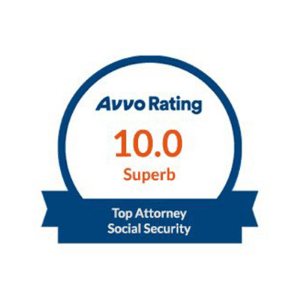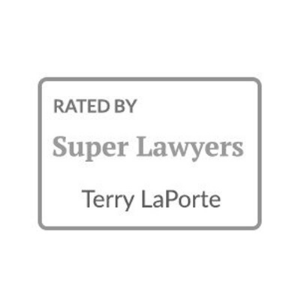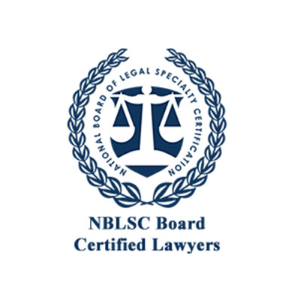Social Security Disability frequently asked questions
Social Security Disability frequently asked questions
Webinars and Ebooks

Watch professionals guide you through the disability application or appeal journey.
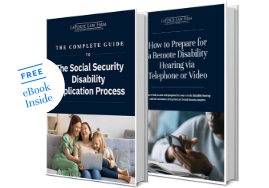
Read the tips and tricks of disability attorneys to maximize your chances.
I have questions regarding...
SSDI Applications and Appeals
SSI Applications and Appeals
Social Security Disability legal fees
SSDI Applications and Appeals
How does Social Security define disability?
Disability is defined by Social Security law as “the inability to engage in any substantial gainful activity (SGA) by reason of any medically determinable physical or mental impairment(s) which can be expected to result in death or which has lasted or can be expected to last for a continuous period of not less than 12 months.”
Is it true that the Social Security Administration denies everyone on the first application?
While it is true that the Social Security Administration (SSA) denies many of the claims submitted, it is also true that you can win your case the first time you apply. The best way to achieve success the first time is to know exactly what you are doing, or retain a Social Security Disability attorney who does. LaPorte Law Firm has disability lawyers with decades of experience who can fill this role. We handle hundreds of disability claims each year, and most of them are successful the first time we try.
Can I win a disability case if I am young?
Am I allowed to work if I am applying for Social Security benefits?
Can I work after I begin receiving my benefits?
When your benefits begin, the SSA will inform you of your duty to report future work income, as it could have an effect on your benefits. As a disability beneficiary, you are entitled to a Trial Work Period where you can test your ability to work while receiving disability benefits. The amount of income you earn during your Trial Work Period and the length of your work may impact your benefit. Read our blog post on the Trial Work Period for more information.
Can I receive SSDI if I have money and assets?
Will SSDI replace all my lost income?
How long does it take to receive SSDI benefits?
How much will I be paying in attorney’s fees?
Attorney’s fees are 25% of the first retroactive payment to you by the SSA; however, the fee is capped at US$7,200 regardless of the amount of money you are owed by the SSA. After November 30, 2024, the maximum attorney’s fees are capped at $9,200. There is no ongoing fee after you win your case. Because the SSA can take several years to adjudicate a disability claim, disability claimants are often entitled to a large check for retroactive benefits for the period in which they were waiting for their claim to be decided. Our fees automatically come out of that first retroactive check, so our clients never have to pay us directly.
What should I do if Social Security denies my application?
If I can’t afford a doctor, how can I prove my medical condition?
Is it still possible to win my case if my doctor won't support my claim of disability?
What should I do if I didn’t file my appeal within 60 days and still want to appeal?
What should I do if the SSA does not allow my late appeal?
How much will I receive if my claim is successful?
The monthly amount you will receive depends on factors such as age, past earnings, and type of benefit. The law allows retroactive pay up to 12 months prior to the month of a disability application. To get a better idea of your situation, it is advisable to consult the SSA’s benefit calculator.
Do I need a Social Security Disability Lawyer to represent me?
What will happen at my Social Security Disability hearing?
Do you have to be permanently disabled to get Social Security Disability benefits?
What do you mean about unfavorable facts in my file?
What are the reasons for being denied Social Security Disability benefits?
Social Security Disability applicants are typically denied for the following reasons:
- Criminal convictions: Although prior convictions do not generally affect your ability to obtain Social Security benefits, a convicted criminal will not be able obtain benefits if their disability is a direct result of an action that took place during the commission of a crime, if the disability stems from time spent in a correctional facility, they intentionally became an orphan or widow to receive benefits, or parole or probation has been violated.
- Alcohol- or drug dependence-related disability: If a drug or alcohol addiction is determined to have led to your disability, you will not be eligible for benefits.
- Lack of cooperation: The SSA requires applicants to submit their treating doctors’ medical records. Failure to comply with SSA requirements, such as not submitting your treating doctor’s medical records, leads to Social Security Disability claims being denied. If you do not have a treating doctor, you may be required to undergo an examination with one of the SSA’s doctors; failing to do so may result in your claim being denied.
- Fraud: Lying on an application may lead to benefits being denied as well as prosecution for fraud.
- Length of disability: A short-term disability does not meet the requirement for receiving Social Security Benefits, as the SSA requires the disability to last for at least a year or likely to result in death, with the exception being blind applicants.
- If you want to know more about SSDI applications and SSDI appeals, you can visit our dedicated pages.
SSI Applications and Appeals
What is the difference between SSDI benefits and SSI benefits?
For Supplemental Security Income (SSI) benefits, no work time is required at all. There are, however, limits to eligibility based on how much property you own or money you have in the bank, as the SSI program is aimed at individuals who lack income or resources and are disabled. Benefits are paid as a flat rate, and the amount may be reduced if you receive any money or assistance from any source.
With both SSI and SSDI, you must be found disabled. The SSA oversees both programs and defines disability as being unable to perform any “substantial gainful activity.”
How does SSI work?
Who is eligible for SSI?
- States that do not offer supplemental SSI payments are Arizona, Mississippi, North Dakota and West Virginia.
- Residents of Puerto Rico, the US Virgin Islands, American Samoa, and Guam are not eligible for SSI. For more information on this, read our article on the Supreme Court ruling.
- Although residents of the Northern Mariana Islands are eligible for SSI, federal payments are not supplemented in the territory.
Can I apply for SSI online myself?
- Aged 16 to 65
- US citizens living in one of the 50 states, the District of Columbia, or the Northern Mariana Islands
- Single and have not been married before
- First-time SSI applicants
Can I receive both SSI and SSDI?
Will my income affect my SSI payments?
What is considered counted income by the SSA?
What are resources and how will they affect my SSI payments?
Social Security Disability legal fees
Do I have to pay anything upfront when hiring an attorney to represent my Social Security Disability case?
What should be in a fee agreement?
Are there any costs associated with the case that I need to pay out of pocket?
At LaPorte Law Firm, for the vast majority of cases, we pay upfront for any additional costs and bill clients at the end of the case once they get their award, ensuring no out-of-pocket expenses will be required from clients during the claim process.
When hiring legal representation for a Social Security Disability claim, it’s important to clarify whether you will be responsible for out-of-pocket expenses on top of the attorney’s fee and what types of expenses will be included.
Who will pay my attorney once the case is won?
What is the maximum amount a Social Security Disability attorney can charge me?
As mandated by the SSA, attorney’s fees are capped at US$7,200.
How is disability back pay calculated?
Do I need to continue paying my lawyer on my future monthly Social Security Disability payments if my case is approved?
What if my disability case is denied? Do I still have to pay my attorney?
No, your attorney will not be able to charge a fee unless your case is successful, as Social Security requires disability cases to be done on a contingency basis.
- If you want to know more about legals fees regarding SSDI and SSI applications, you can visit our dedicated page:
Didn’t find the answer to your question?
The results you deserve
With over 40 years of service, LaPorte Law Firm has won thousands of claims and appeals for our clients.
Excellent free consultation. The firm carefully studied my case, and I won! I was only charged after winning and didn’t have to pay out of pocket, because the fee was taken out of my disability payment. The only downside was the wait for my hearing, but that’s more on the SSA side. It took about 18 months.
Walt E.
I want to thank Mr. Terry LaPorte and his staff for their support. Their know-how and expertise in this area are immense, and their guidance every step of the way was crucial in moving things forward. I am very happy and grateful to have worked with Terry and his staff.
Deepa J.
Terry LaPorte is the best. When I was looking for a referral, every knowledgeable attorney referred me to Terry (and only Terry). He worked hard for me, was an excellent advocate, and I completely trust his judgment. He is a kind and decent man, too. I’m grateful I found him.
Sam H.
Kevin LaPorte and Terry LaPorte helped my wife through what had previously been a challenging disability appeal that spanned years. Our only regret is not calling them sooner!
The Pages M.
Downtown, San Jose, CA
Attorney Kevin LaPorte represented me on my SSDI case. He was generous with his time, professional, and he and his staff always kept me informed through each step in the process.
Phil H.
Pleasanton, CA
I was very down on my luck and got an appointment set up in Oakland ca. I guess he was expecting me. He was a straight shooter.
Eyez V.
Emeryville, CA
How it works:
- Complete the form so we can learn more about your situation.
- We will reach out within 48 hours to schedule your free, no-obligation consultation with an attorney.
- If your case can be pursued, we’ll start working on it.
- We only get paid if your case is approved.
How we can help:
- Free case evaluation by an attorney
- Social Security Disability Insurance application
- Social Security Disability Insurance appeal
- Disability hearing preparation
NO FEES UNLESS YOU WIN.
Award-winning service
Equipped with years of experience and thousands of successful cases, LaPorte Law Firm is the leading disability attorney in the Bay Area, and we have the awards and certifications to prove it.

